Operating Systems (OS) for Business facilitate efficient workflow management and enhance productivity across organizations by providing a stable and secure computing environment, supporting applications and services needed for business operations.
Operating Systems (OS) like Microsoft Windows, Apple macOS, and various Linux distributions play critical roles in business processes. They provide the foundation upon which software applications are installed and run, managing hardware resources and facilitating communication between software and hardware devices. Stability, security, and versatility are key factors for businesses choosing an OS, ensuring compatibility and support for a broad range of applications and peripherals. A reliable OS is foundational for running enterprise applications, enabling network management, and ensuring data integrity and security, contributing to streamlined operations.
What features are important in Operating Systems for Business?In industries like finance and healthcare, Operating Systems for Business are crucial for managing sensitive data securely, ensuring compliance with regulations, and supporting unique application needs. The technology sector relies on them for software development and testing, providing robust environments for continuous integration and deployment processes.
These systems are fundamental for organizations to maintain operational efficiency, security, and adaptability in a dynamic market landscape, supporting diverse business applications and processes.
| Product | Market Share (%) |
|---|---|
| Rocky Linux | 12.2% |
| Ubuntu Linux | 9.4% |
| Windows Server | 9.3% |
| Other | 69.1% |


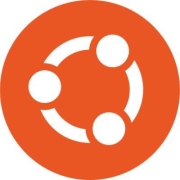






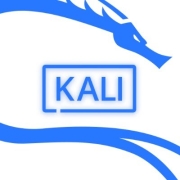








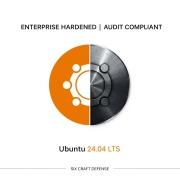




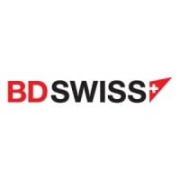

















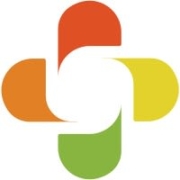



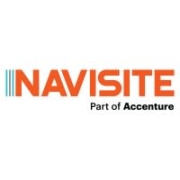









The operating system is the most important piece of software, without which the computer cannot function. The OS manages all the software and hardware on the computer or mobile device.
Typically, a computer or device will have several computer programs running. All of these need access to the central processing unit (CPU) memory, and there is a need for a central system that coordinates it all. That is the function of the operating system.
Since the task of the OS is to allow you to run the programs on your device, most operating systems will provide a graphical user interface (GUI), which allows you to interact with the computer.
Every device with a computer chip uses an operating system. This includes not only computers but also computerized devices like:
Operating systems come preloaded into the device to allow it to function.
There are seven main types of operating systems:
Operating systems manage and coordinate all programs and applications on computers and mobile devices. Some of the functions of an OS include:
Operating systems problems are very common. The OS can become prey to viruses, malware, or installation problems. Cookies and temporary files can clutter the system and slow it down.
Computers may crash because of errors in the operating system software or in the hardware. As the OS provides the interface between applications and the hardware, there can be a number of errors in this interaction. One of the most common is when the OS tries to access an incorrect memory address.
Other errors can send the OS into an infinite loop. In such cases, the system locks and needs to reset. The OS can also crash when it doesn’t manage the system resources correctly.
Diagnosing the potential causes of an OS crash is not always easy, but an IT professional can help you figure out what the issue is.
The choice of an Operating System can significantly impact business productivity. Windows OS is known for its user-friendly interface and wide compatibility with business applications, making it a suitable choice for most enterprises. macOS offers seamless integration with Apple products and is favored by creative industries for its robust performance in graphics and design software. Linux, being open-source, provides flexibility and security, making it ideal for businesses needing custom solutions. Each OS can enhance productivity by aligning with business needs and employee preferences.
How do Operating Systems for Business affect security strategies?Operating Systems play a crucial role in shaping a business's security strategy. Windows OS, often targeted by malware, requires comprehensive security protocols. Regular updates and robust anti-virus software are necessary to mitigate risks. macOS is considered more secure due to its UNIX foundation, but it too requires up-to-date security practices. Linux is heralded for its strong security architecture, making it a favorite for enterprises prioritizing data protection. Choosing the right OS should align with your business's security infrastructure to protect sensitive information effectively.
How do you determine the compatibility of business software with your Operating System?Before adopting any Operating System for Business, ensuring software compatibility is vital. Start by identifying core applications your business relies on and check against their system requirements. Many vendors specify compatible Operating Systems on their websites. Consider virtualization as an option if your preferred OS does not support a critical application directly. For cross-platform needs, solutions like dual-boot configurations can be implemented, allowing businesses to leverage multiple Operating Systems within the same environment without compromise.
Why is Linux gaining popularity among businesses?Linux is increasingly popular among businesses due to its cost-efficiency, flexibility, and robust security. As an open-source OS, Linux allows businesses to customize their systems according to specific needs. It supports a wide range of hardware, reducing costs associated with new infrastructure. Security-wise, its code transparency allows thorough scrutiny, resulting in fewer vulnerabilities and rapid patching capabilities. Moreover, its strong community support and comprehensive documentation make it a reliable choice for IT teams looking to drive innovation without sacrificing stability.
How do Operating Systems affect cloud integration for businesses?Operating Systems significantly influence how businesses integrate with cloud services. Windows and macOS offer seamless integration with major cloud service providers like Microsoft Azure and iCloud, enabling smooth data synchronization and access. Linux, with its flexibility, is widely used for cloud infrastructure, providing robust support for various cloud platforms through containerization technologies like Docker. A cloud-compatible OS ensures your business can effortlessly leverage cloud resources, enhancing scalability and operational efficiency.